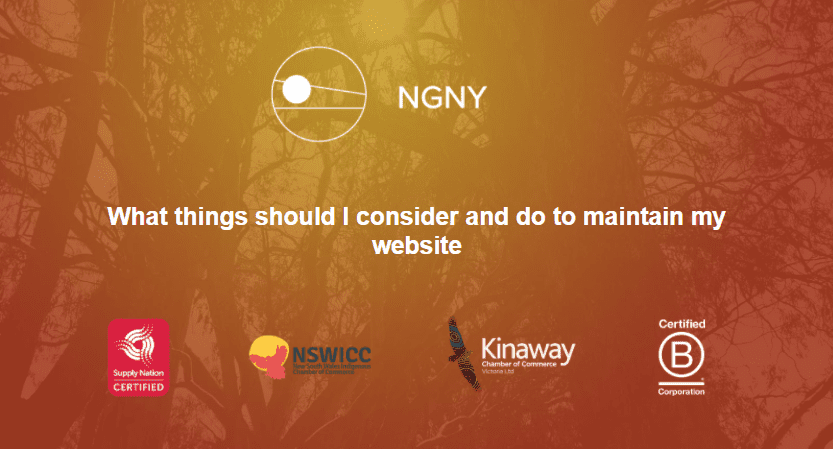
The work does not end once you’ve already pushed your site live In fact, this where the work actually begins. With regular website maintenance, your site will run smoothly. Using a proper website maintenance program you can try and avoid being hacked by keeping everything up to date. With a regular maintenance for websites in place it secures your site and prevents you from losing pertinent data. It also enhances user experiences because you allow visitors to engage by giving updated, fresh and compelling content.
What are the considerations in maintaining a website?
- Ensure you are providing fresh content
Website content can include written text, images, free downloads, anything that is going to draw new visitors in and keep your existing visitors coming back. Here are some ideas: Product updates, company news, organization events and giveaways. Updating old content should be on your website maintenance list also. Information becomes outdated so keep your content up to date to show your visitors you are on top of the subject and you give importance to giving only the best to your visitors.
- Adding new features for the website.
Do not be afraid to incorporate new features on your website with the goal in mind to improve the overall user experience. Review your website content and apply changes. If you feel your payment portal options can be improved, then by all means do it. If your newsletter has not been updated with new events, perhaps it’s about time to upload fresh content on events and scrap off those which are outdated.
- Backing up your website to ensure its safety from malware and hackers.
Backing up your website is something you should do all the time, especially if you are the type that uses the online interface of your store or blog to make changes. Even though the web hosting company says they backup the sites on their servers, their last backup could have been before your last edit. If the server crashes for some reason or your site gets hacked, your edits will be gone if the web hosting company restores what they had backed up. Imagine losing a whole day’s work, just because you didn’t take a few minutes to backup the site.
- Monitoring website outages to act on them abruptly.
If your site goes down, you want to be the first to know and not receive an email from someone else they can not access your site. SiteUp is a small program that runs on your computer in the background checking your site on a regular basis. It will notify you when the site is down with a popup. Obviously though, your computer has to be on for it to work.
- Testing your website speed.
Testing the download speed of your site regularly is important. Especially if you have added a new feature. Web surfers have a very short attention span. If your site is slow to load, they are not going to wait. You need to do everything you can to improve the download speed of your site or blog so visitors stay to read your content and hopefully provide you with organic incoming links by spreading the word for you what a wonderful site you have.
- Checking regularly fixes broken links.
Links become broken over time. With changes within the site and if you referenced someone in one of your articles or somewhere else within the site links could have changed or are broken. The task to find broken links isn’t too hard. Just use a link checker to test your external links and internal links at least once a month.
- Regularly doing software updates.
Third party software, like your ecommerce software, WordPress and Joomla for example, are always updating their software. You need to keep on top these updates and install them as soon as they come out. The updates won’t just be new features, they will include security updates too.
- Improve your website’s reputation management.
Using Google Alerts, you can monitor your website name, your name, your brand and your content on the web. You will know who is talking about you. This gives you an opportunity to jump into the conversation. Fix a problem that is being discussed related to your business. Tracking your website address with Google Alerts comes in two-fold. First you can see who is linking to you and can interact with them. Second, you can catch those who use your content without your permission.




